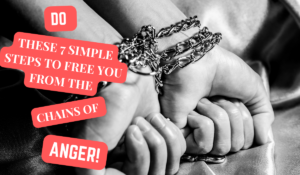
INTRODUCTION – WHAT IS TRUST IN A RELATIONSHIP
Before delving into rebuilding trust, it’s essential to grasp the essence of trust itself.
Consider trust as a conscious decision—an active choice that individuals make. Trust isn’t something that can be forced upon someone; it’s earned through consistent actions and behaviours. Often, individuals withhold their trust until they perceive that someone deserves it based on their reliability, honesty, and integrity.
Cynthia L. Wall LCSW has written a great book called The Courage to Trust: A Guide to Building Deep and Lasting Relationships. It is perfect for people who have suffered from broken trust in previous relationships.
However, when observing a couple who trust each other, six signs become apparent in their interactions and behaviour. E.g.

SIGNS OF TRUST IN A RELATIONSHIP
Open Communication: Trusted couples often communicate openly and honestly with each other. They feel comfortable expressing their thoughts, feelings, and concerns.
Vulnerability: Trusting couples are willing to be vulnerable with each other, sharing their hopes, fears, and insecurities without reservations or fear of judgment or reprisal.
Consistency: Trust is built on a foundation of consistency and reliability. Trusted couples demonstrate consistency in their words and actions,
Respect: Mutual respect is a hallmark of a trusting relationship. Trusted couples treat each other with kindness, consideration, and appreciation, valuing each other’s opinions, boundaries, and autonomy.
Shared Values and Goals: Trusted couples often share similar values, goals, and priorities. They work together as a team, supporting each other’s aspirations and dreams,
Independence and Autonomy: Despite their intense bond, trusted couples respect each other’s freedom and autonomy. They encourage each other to pursue individual interests, hobbies, and friendships,

The first thing that disappears after a betrayal trauma is Trust. Gone are the six indicators of Trust. So, when a betrayal trauma happens within a relationship, how do we get it back? It’s not an easy road, but specific ground rules must exist.
Rebuilding trust after experiencing the trauma of betrayal is a challenging but achievable process that requires dedication, patience, and open communication.
The following are the ten most important steps to consider:
HEALING FROM BETRAYAL TRAUMA
Step 1.
Acknowledge the Betrayal: The first step in rebuilding trust is acknowledging the betrayal and its impact on the relationship. Both partners must recognise the severity of the breach of trust and take responsibility for their actions.
Step 2.
Open Communication: Foster open and honest communication between partners. Encourage each other to express thoughts, feelings, and concerns without fear of judgment or retaliation. Transparency is key to rebuilding trust, so be willing to answer questions and address any lingering doubts or insecurities.
Step 3.
Demonstrate Remorse and Empathy: The betrayer must demonstrate genuine remorse for their actions and express empathy for the pain and hurt they’ve caused their partner. This involves actively listening to their partner’s feelings, validating their experiences, and showing a sincere desire to make amends.
Step 4.
Take Accountability: The betrayer should take full accountability for their actions and consequences. This may involve apologising sincerely, acknowledging the impact of their betrayal, and committing to making meaningful changes to rebuild trust.
Step 5.
Commit to Transparency: Establish clear boundaries and guidelines for rebuilding trust and commit to transparency and honesty. This may include sharing passwords, being open about whereabouts, and avoiding situations that could trigger insecurities or doubts.
Step 6.
Be Patient: Rebuilding trust takes time and cannot be rushed. Both partners need to be patient and understanding as they navigate the ups and downs of the healing process. Healing from betrayal trauma is a journey, and it’s essential to allow space for healing to occur at its own pace.

Step 7.
Seek Counselling: Consider seeking support from a qualified therapist or counsellor specialising in relationships and betrayal trauma. Therapy can provide a safe space for both partners to explore their feelings, work through unresolved issues, and learn effective communication and coping strategies.
Step 8.
Practice Forgiveness: Forgiveness is a crucial component of rebuilding trust, but it’s essential to understand that forgiveness is a process, not a one-time event. Both partners must work towards forgiving each other and letting go of resentment and bitterness for healing to occur fully.
Step 9.
Rebuild Connection: Focus on rebuilding emotional intimacy and connection in the relationship. Spend quality time together, engage in activities you both enjoy and prioritise nurturing the bond between you. Strengthening your connection can help rebuild trust and restore security and closeness.
Step 10
Stay Committed: Rebuilding trust requires ongoing effort and commitment from both partners. Stay committed to the process, remain patient and understanding, and continue communicating openly and honestly as you work towards rebuilding a strong and healthy relationship.
WHY THERAPY IS IMPORTANT TO HEAL IN A RELATIONSHIP AFTER INFIDELITY
PERSONAL THERAPY
In addition to couples counselling, individual therapy is a crucial component of healing and recovery after infidelity.
Betrayal can deeply wound a person’s self-esteem and sense of self-worth. Individual therapy offers a supportive space to explore and address feelings of inadequacy, insecurity, and worthlessness that may arise due to the betrayal. A therapist can help you challenge negative self-talk, cultivate self-compassion, and rebuild a positive self-image.
It’s common for individuals who have experienced betrayal to internalise feelings of self-blame or guilt, even when they are not at fault. Individual therapy provides an opportunity to examine and challenge these self-blaming beliefs, helping you understand that betrayal is a choice made by the betrayer, not a reflection of your worth or value.

CONCLUSION – HEALING FROM BETRAYAL TRAUMA
Many clients I have spoken to over the years fearfully share that their marriage will never be the same after betrayal trauma. My answer is yes, you are right because you want it to be better. You don’t want to go back to old ways; you want things to be different so that a betrayal will never happen again.
While the road to recovery may be challenging and, at times, daunting, each step forward brings individuals closer to a future defined by healing, resilience, and the possibility of renewed trust, connection, and joy in relationships. Dedication, patience, and willingness to embrace the journey make recovery from betrayal trauma possible and achievable, paving the way for a brighter, more fulfilling future.
https://lindamcowan.com/betrayal-blindness-the-devastating-consequences




Pingback: HOW TO DEAL WITH LONELINESS AND REJECTION